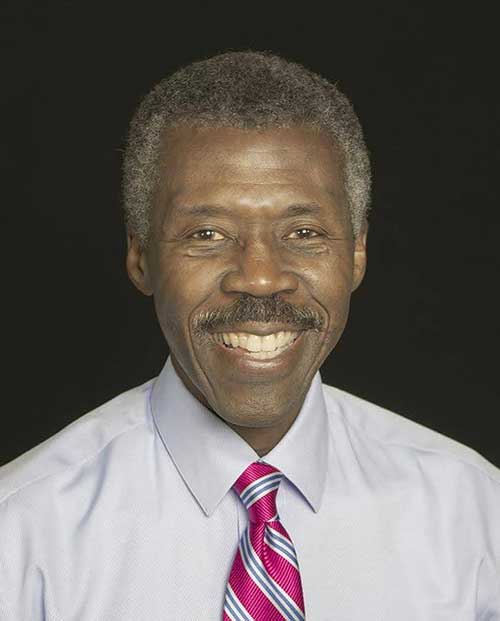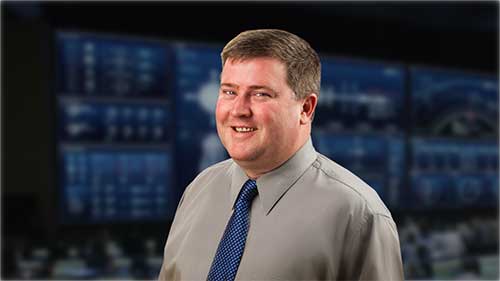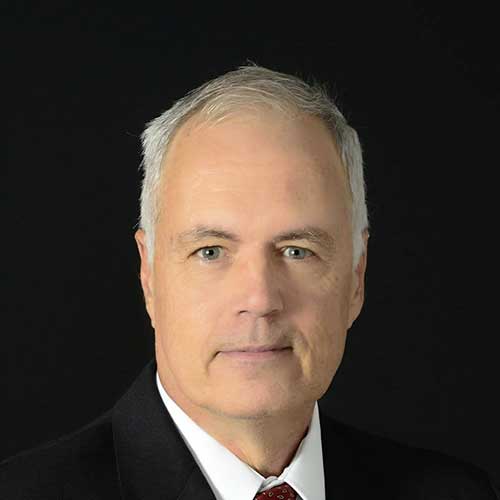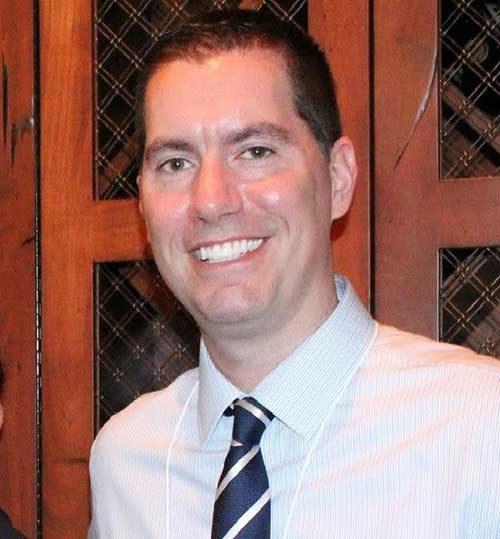SeCAPS 2025 Keynote Speakers
 Mr. Alan Sealls is retired from a career as a broadcast meteorologist. He most recently was Chief
Meteorologist at NBC15 in Mobile, after serving as Chief Meteorologist at WKRG-TV
for 20 years. Alan earned bachelor’s and master’s degrees in meteorology, respectively,
from Cornell, and from FSU. He is a Fellow of the AMS, and a Past President of the
NWA. Alan teaches weather broadcasting at the University of South Alabama, each spring.
He writes a bi-weekly weather column for Lagniappe Newspaper. He has written and produced
more than 100 weather videos used by educators in multiple countries. Alan has also
authored three weather books. He serves as a consulting meteorologist and expert witness
in legal cases.
Mr. Alan Sealls is retired from a career as a broadcast meteorologist. He most recently was Chief
Meteorologist at NBC15 in Mobile, after serving as Chief Meteorologist at WKRG-TV
for 20 years. Alan earned bachelor’s and master’s degrees in meteorology, respectively,
from Cornell, and from FSU. He is a Fellow of the AMS, and a Past President of the
NWA. Alan teaches weather broadcasting at the University of South Alabama, each spring.
He writes a bi-weekly weather column for Lagniappe Newspaper. He has written and produced
more than 100 weather videos used by educators in multiple countries. Alan has also
authored three weather books. He serves as a consulting meteorologist and expert witness
in legal cases.
Before arriving in Mobile in 1999, Alan was a meteorologist at the NBC TV station in Chicago. Prior to that he spent 5 years at Chicago superstation WGN-TV. In Chicago, he taught meteorology at Columbia College. Before Chicago, Alan Sealls was a TV meteorologist in Milwaukee, Wisconsin, and in Albany, Georgia. He’s originally from a suburb of New York City.
Alan is a sixteen-time Emmy winner. He went viral on YouTube for coverage of Hurricane Irma, in 2017. Over his career, Alan visited more than 800 schools, reaching tens of thousands of kids. Alan is also an accomplished weather photographer. His work and weather photos have been used in television, science research, and in textbooks.

Mr. Tony Rice is a data scientist and volunteer in the NASA Jet Propulsion Laboratory’s Solar System Ambassador program which connects the public with the science and excitement of space exploration.
For more than a decade he has carved out a science communication niche at the intersection of astronomy. Tony regularly engages more than 500 broadcast meteorologists, National Weather Service personnel, and student meteorologists, offering insights on astronomy and space events that can captivate their audiences. He has spoken at AMS and NWA annual meetings on how broadcast meteorologists can leverage astronomy to build their brand as station scientist and trust with their audience.
Tony is a weekly contributor to the Weather Brains podcast, a frequent guest on the Fox Weather channel, and a regular contributor to WRAL-TV in Raleigh, NC, on astronomy and space science topics. He is currently completing an almanac of eclipses, detailing the total, annular, and partial solar eclipses closest to you over five millennia.
Outside of weather and astronomy, Tony holds a degree in Computer Science from Virginia Tech and works as a cybersecurity architect for Cisco, where he specializes in risk and compliance for government systems. He also speaks internationally on automating development security operations and holds patents on cloud security and observability.
 Mr. Tim Marshall was born and raised in the Chicago area. On April 21, 1967, an F4 tornado struck
his hometown of Oak Lawn, IL. The tornado traveled 16 miles, damaged hundreds of homes
and caused 33 deaths. At that moment, nine-year-old Tim Marshall knew he wanted to
study tornadoes for the rest of his life. After earning his B.S. in meteorology from
Northern Illinois University, Tim studied at the Institute for Disaster Research at
Texas Tech, earning an M.S. in atmospheric science and an M.S. in civil engineering,
becoming a professional engineer in 1989. He is among a small group of people worldwide
who have expertise in both meteorology and engineering. Tim has spent the past four-plus
decades assessing storm damage to buildings working with Haag Engineering Company,
a failure and damage consulting company based in Dallas, Texas.
Mr. Tim Marshall was born and raised in the Chicago area. On April 21, 1967, an F4 tornado struck
his hometown of Oak Lawn, IL. The tornado traveled 16 miles, damaged hundreds of homes
and caused 33 deaths. At that moment, nine-year-old Tim Marshall knew he wanted to
study tornadoes for the rest of his life. After earning his B.S. in meteorology from
Northern Illinois University, Tim studied at the Institute for Disaster Research at
Texas Tech, earning an M.S. in atmospheric science and an M.S. in civil engineering,
becoming a professional engineer in 1989. He is among a small group of people worldwide
who have expertise in both meteorology and engineering. Tim has spent the past four-plus
decades assessing storm damage to buildings working with Haag Engineering Company,
a failure and damage consulting company based in Dallas, Texas.
Tim has presented numerous lectures and courses on storm damage assessment. For three decades he taught weather coordination meteorologists storm damage techniques periodically at the NOAA training center in Kansas City. In his spare time, Tim chases tornadoes and hurricanes and has been involved in several NSF sponsored field projects such as VORTEX, ROTATE, TWIRL, and most recently ICECHIP. Tim has published more than one hundred papers during his career and has been involved in developing and upgrading the Enhanced Fujita and Saffir-Simpson scales. He is a member of the American Meteorological Society, National Weather Association and the American Society of Civil Engineers.
 Mr. Brian LaMarre currently serves as the NWS Operations Model Program Manager - a new career position
he started in September 2024. Brian will now be leading efforts across the agency
to design and implement a modernized National Weather Service (NWS) operating structure.
This operating model is focused on enabling decision support at the intersection of
science and technology and robust community and partner engagement. Prior to this
position, Brian was the meteorologist-in-charge (MIC) of the NWS Tampa, Florida Weather
Forecast Office.
Mr. Brian LaMarre currently serves as the NWS Operations Model Program Manager - a new career position
he started in September 2024. Brian will now be leading efforts across the agency
to design and implement a modernized National Weather Service (NWS) operating structure.
This operating model is focused on enabling decision support at the intersection of
science and technology and robust community and partner engagement. Prior to this
position, Brian was the meteorologist-in-charge (MIC) of the NWS Tampa, Florida Weather
Forecast Office.
Brian grew up in Connecticut and started his career in 1992 as a student volunteer with the NWS office in Hartford, CT. Brian was selected for his first permanent meteorologist position in 1994 with the NWS office in Corpus Christi, Texas where he served as a meteorologist intern, general forecaster and senior meteorologist. Brian also served as the national marine and coastal weather services program manager at NWS Headquarters in Silver Spring, Maryland and as the Warning Coordination Meteorologist (WCM) at NWS Lubbock, Texas before serving for over 17 years as the MIC of the Tampa, Florida Weather Forecast Office from 2007 to 2024.
Brian earned a bachelor’s degree in meteorology in 1994 and a master’s degree in management specializing in leadership and organizational change in 2014. Brian also served as the Team Lead for the NOAA's Gulf of Mexico regional collaboration team from 2015 to 2024 helping to connect NOAA's people and resources across the five states of Texas, Louisiana, Mississippi, Alabama and Florida.


